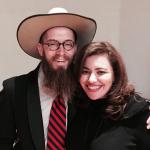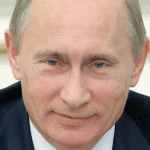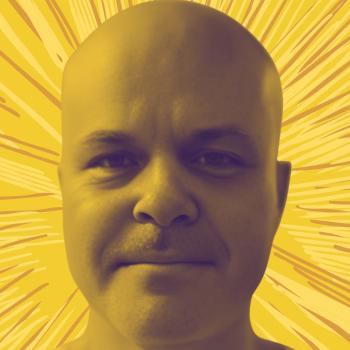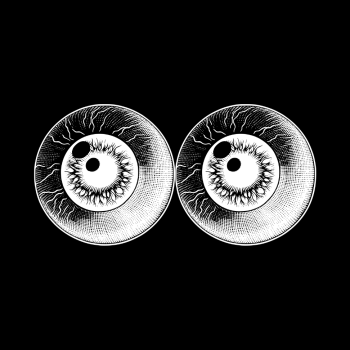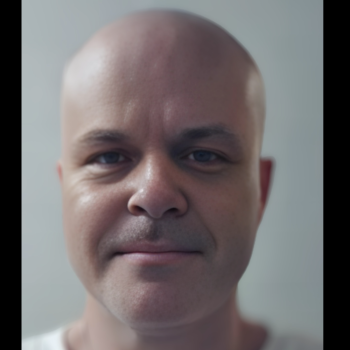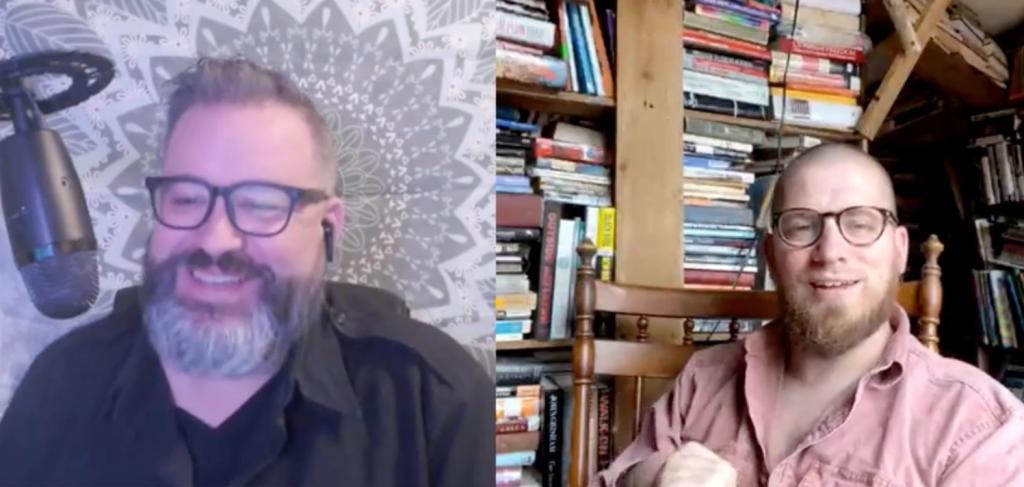
Food Queeries: Liberating Our Cuisine / Dialogue at The New Theology School: Jeff Hood & Mark Sandlin
forgive the grammatical errors / it’s an unedited transcript
Rev. Mark Sandlin 00:02
Hello, and thanks for joining us. This interaction is the introduction to a project that I’m working on with The New Theology School. And we’re gonna get into what that is in just a minute. But first, I wanted to welcome and thank Jeff Hood, who is a friend of mine. He’s an activist, particularly in areas of the death penalty, but he’s also more importantly for this interaction, the Dean of The New Theology School. So welcome, Jeff, glad to have you with you, man.
Rev. Dr. Jeff Hood 00:31
Thank you, Brother, I appreciate it.
Rev. Mark Sandlin 00:33
Very good. So, my project, ah, the working title for it is, ah, “Food Queeries.” I’m looking at subtitle of something like, “Food, Identity, and Justice.” And I wanted to introduce everybody to this, it’s going to include five other videos where I’ll be cooking and talking about queer theology in particular, and how that should impact us in terms of who we are. And. as we address justice issues, particularly maybe politically, so I wanted to start out with something pretty simple, Jeff, just to think about food in general, to see where how, my thought process to get to why I think this is an interesting and important subject to put together and talk about. So for you, how do you – simple question, how do you experience food? Like what is – what is what is your engagement when you approach food?
Rev. Dr. Jeff Hood 01:30
Well, of course, I feel like I every time I think about the idea of food, I think about hunger?
Rev. Mark Sandlin 01:35
Yeah, absolutely.
Rev. Dr. Jeff Hood 01:37
You know, I, I used to back in the day, you know, they always used to sing that song. And evangelicals plays, [singing] “hungry I am, desprit..,” you know, you remember that, you know, I’m talking about much, but, you know, I remember. Back then, of course, you have this the nature of spiritual hunger. But I also realize, I remember when I heard that song when I was young, I remember thinking that for the first time, what it meant interact with God, based on what I eat, and based on how I eat, where I eat. And, you know, Brother Lawrence, always constantly talked about the practice of the presence of God, it’s no matter what we say, what we do, where we’re at. And so I you know, I think that one of the reasons that this project is so interesting to me, is that, while it’s easy to say, you know, when food tastes good, you know that that’s God. You know, I’ve even heard this story about some of the Jewish schools in Israel historically having to explain this passage, “Taste, and see that the Lord is good.” Some of the young students to open up their mouths, and they put honey on their tongues and say, “take and see that the Lord is good.” And all of that, you know, of course, sounds beautiful, but there’s also this justice component – like, is in the, in the cards as well. And, you know, so, again, I think that’s why this project is of such interest to me. You know, basically say, food is more than just its taste, it’s also its source. It’s also it’s, it’s also, you know, there’s also an element of what it empowers us to do.
Rev. Mark Sandlin 02:43
Right. Right and it’s the history of it, that builds into it. And we can learn a lot from all of that. And it’s more than just taste. I mean, it engages all of our senses in a way that most things don’t, I mean, some people experience food deeply through taste, through smell, through – through the hearing of a fajita plate coming out, of the touch of a messy burger running down your hand. And, and ultimately, because it engages us on a personal way so much it informs our identities. Which, I think then ultimately, we can say, it begins to help you understand how it informs culture and impacts culture when it informs our individual identity that much. And it does that in a way that maybe nothing else does, which is why I find it such a fascinating place to begin exploring theology from and particularly in the United States, where we have so many different types of, of cuisine to look at. And, you know, it’s always been important in religion, as you pointed out, you know, Passover meals, the Eucharist, baklava for Ramadan in Islam. They’re just so many connections there. And it may – one of the things that that makes me end up considering is, while there are these connections as frequently around laws and rules and regulations. I mean, in religion, there are certainly very strict guidelines. You got the Hebraic dietary laws, for instance. Which is interesting, I think, particularly for this project, in that the way that we actually experience food in the real world – try as we might, for instance, take French cuisine, and culinary rules, try as we might to define it tightly like religion does – it doesn’t – cuisine does not adhere to rules and boundaries and guidelines very well. And matter of fact, it does the opposite. It has almost this need to break those boundaries to go outside of them. And so for this project, I think it’s really interesting to look at U.S. cuisine. Because we have so many areas where people have come together and might be bringing with them these expectations and rules, these guidelines of how things are supposed to be done. But then, when life gets real – I think one of the things that as I’ve looked into queer theology and began to understand it and recognize all the sources behind it from LGBTQ work, women’s theory, liberation theology, is that life is just queer man, life is queer. When we bring all these people together, food ends up being this great entry point to recognize what that statement itself is, “Life is queer,” because we see all these combinations of people coming together, bringing their food outlooks together, bringing their histories together, and doing it without even thinking about it. There’s no way we can’t do that. Because we’ve never done that we there’s no, well, we’re we have these rules that don’t allow us to do that. And so I think it’s an interesting place to enter into talking about pushing boundaries, breaking rules, standing over and against faults, boundaries, normative constructs, those types of things, because it’s something we all sort of intrinsically understand and are perfectly fine with when it comes to the culinary arts. So that’s kind of a big, big angle that I think makes this a lovely entry point. Plus, it doesn’t hurt that I love to cook. So my, my idea here is, is that as we continue to explore this, I’m going to look at the at about five different areas in the United States, where I feel very strongly they represent within their culinary construct, true, queer approach to life, into food. And a great entry point into considering a lot of pieces of queer theory, queer theology, as well as what an understanding of those things should call us towards, in the pursuit of justice, and maybe particularly in the political realm.
Rev. Dr. Jeff Hood 08:07
Yeah, I mean, you know, one of the things that, you know, I talked about this project that I’ve, that I’ve thought about is, you know, Jesus, Jesus has the Last Supper creates this space of communion and creates this space of, as often, as you gather remember me that, that Jesus is in our food, or that Jesus is in food. And so I think that that should, you know, speak to us and say something to us about what it means to eat that, that eating is an act of worship, to some degree. And, you know, I’ve thought about, you know, what is it like to experience God and have beignet. What does it get like to, you know, experience God and some soul food in Memphis? Or, you know, some barbecue in Texas, or, you know, some lobster bisque in Maine, I mean, and you could go on and on and on. And obviously, there are messier, queerer, more colorful, I mean, you know, all of these descriptors, there’s all these different dishes all over the place. [“Right.”] It does seem like throughout history, food shows up in interesting spaces. You know, a lot of the times, very much a student of the civil rights movement, and a lot of times you hear about, you know, I guess, freedom songs, taking old spirituals and adapting them to this historic moment, but there’s also the the freedom dishes, as well. [“Right, yeah.”] That is used to prepare celebrate, [inaduable], push – And, you know, I think that there’s a reason that in spaces of just diplomacy and and spaces of great change or great celebration, it’s often done around meals, right? This project is more than, you know, what are we going to have for dinner? I think [“Oh, yeah.”], I think it’s, it’s about, you know, what or how are we going to live out this kind of gone a spiritual mandate? How are we going to love our neighbor as ourself based on how we eat, based on how we encounter their food based on how they encounter our food. And I’ll say this quick, and then we’ll get back to, I guess the way that this is structured. But, you know, it was a number of years ago, I’ve been a vegetarian, hopeful vegan, I guess, is a good way of saying, yeah, and sometimes a better vegan than others. But I’ve been at least been a vegetarian for about 25 years now. And what brought me to this space of vegetarianism, in realizing how much of a problem the meat industry is for, not just not just the ethical consumption of meat, I mean, obviously, that’s important the way animals are treated, but, but also this next space of the carbon that the meat industry puts into the environment, and how it is such a driving factor of global warming. And so obviously, that’s a that’s a part of the conversation. Justice is always a part of the conversation. But more broadly, it speaks to what we put on our plate, how much it affects other people, and how much our relationship to other people. And so it seems like the play can be a starting point, to the way that we engage – the way the spirituality engages justice in the world.
Rev. Mark Sandlin 12:18
It absolutely absolutely can be and should be. And in a lot of ways, I think, I’m going to go back to queer theology and queer theory in that I think food is this great entry point, this almost embodiment of queerness that we all naturally understand, and can grab hold of. And as we look at different things, for instance, one of the sections that I think we should do is barbecue, which you get to the meat industry, we immediately get this opportunity to talk about what [laughter] – we immediately get this opportunity to talk about, what, what is just in that and how do we go about caring for each other in the world around us as well as, as the livestock and what we should be considering. So these these wonderful little entry points, I think, into several important conversations that ultimately have political impact. But – but I think that telling the story through food, which we all feel so comfortable with, becomes important, because like I said, I do believe that food in a lot of ways, particularly regional types of cuisine in the United States because of how the United States came together, are in some ways the embodiment or an embodiment of queerness. If we take the lessons seriously, for instance, one great quote and maybe maybe the cuisine that I’m most feel like does that is the Creole/Cajun food, particularly maybe gumbo, and you’ve got a rich history behind it that I will get into a little bit because I think it informs how people come together. But Chef Leah Chase, who’s one of the probably one of the better known gumbo chefs in – down in Louisiana, known for several styles of it, had this to say. Well, this is a quote, I’m gonna read that I think, begins to tip my hat and how I think this works. She said, “People are like gumbo. It takes all different kinds of people to make a good world. Just like it takes all kinds of things to make a good gumbo.” For me, that is a kind of a, a small picture of how this plays out throughout this project, where we can we can see how things come together and challenge boundaries and borders and pre-established rules, whether that be dietary laws, or just cuisine cooking like French cuisine and then launch into an understanding of how that impacts our lives and how it impacts others. And how queer theology and queer theory can inform us in our move into the political perspectives of them.
Rev. Dr. Jeff Hood 14:56
Yeah, absolutely. I love that. gumbo illustration. I think that you know, whether it’s gumbo or other styles of cooking, I mean, you’re basically creating something that no, no Gumbo is ever going to taste the same as another gumbo. Right? And Barbie,
Rev. Mark Sandlin 15:16
that’s a good, I was just gonna say,
Rev. Dr. Jeff Hood 15:19
I like that too. I mean, in that, you know, no matter how you cook it, it’s not always gonna taste exactly the same.
Rev. Mark Sandlin 15:28
Yeah, I’ll go back down to Louisiana on another quote on this Chef Paul Perdomme, who was real popular PBS A while back, he puts it real simple. He says, “You should be yourself when you’re cooking.” And part of when he says that it’s because he doesn’t, he doesn’t like following recipes. He’ll read a recipe, but he wants you to be yourself and experiment. And for me, that ties back to a queer theorist, Dr. Judith Butler, who does a lot of work on, um, are you performing to fit other people’s expectations within their rules within their boundaries, are you truly being who you are. And I think food as a chef’s, it calls chefs to be themselves, that’s when they’re successful, when they’re really, really willing to go into these lands in between that aren’t defined by recipes, and put themselves into it in their creativity, and risk some things, that’s when food truly gets transformed. And that’s when life gets transformed. [“That’s right.”] And that’s how we make a difference in the world, is when we’re willing to step outside of these false narrative constructs these false binaries, and, and really put who we really are into it. And, and see that in other people as well and be willing to take risk and step up, and to be transformative in the world towards a more just world where more people can fully express who they truly are.
Rev. Dr. Jeff Hood 16:57
That’s right, you know, it’s kind of funny. You bring up the idea of recipe. You know, what does it take to create a new recipe? Well, it takes somebody leaving an old recipe. [“Exactly.”] Alright, or using no recipe at all. And so such a – such a recipe could be a recipe for disaster, or a recipe for salvation. It could be a recipe for something even more than the recipe. I’ll put it this way. I love thinking about, you know, ways of talking about life as the God beyond God, the very Tillichian thinking, and, and I think what you’re going to be talking about and engaging with, is the recipe beyond the recipe. [“Absolutely.] What does it look like to engage the dish? You know, that, that space where the dish is, is unable to be named, but it’s stepping our souls is touching our lives. It’s touching, the way we send justice and the way we engage the world. And that is when you get to that space, that’s the space of God. That’s the space where God happens.
Rev. Mark Sandlin 18:20
It absolutely as well. I think that is probably a great way to wrap up the introduction to what we’re going to be doing here. So first of all, Jeff, thanks again, for not not only being here to help me introduce it, but for helping guide through the thoughts on how to go about doing this and where it can be impactful. I appreciate you, I appreciate you letting me do this.
Rev. Dr. Jeff Hood 18:42
Yeah, well blessings, brother. I’m proud of you.
Rev. Mark Sandlin 18:46
Alright, well, thanks to all you tuned in. And we’ll be back again with five different videos looking at five different areas of not just cuisine, but of justice and how we might impact it in the world.


